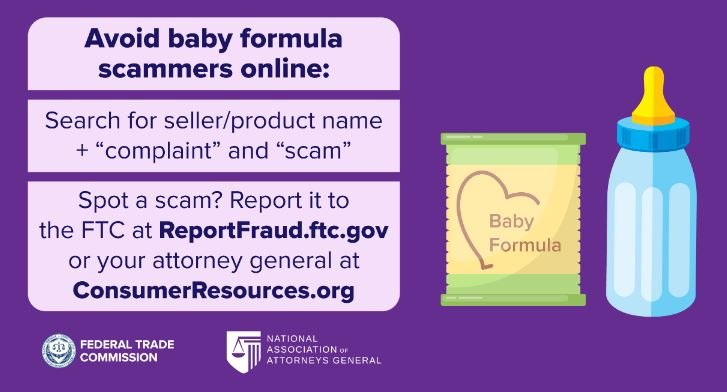Millions of parents in the United States are suffering from the shortage of milk formula for babies, a completely unforeseen problem, with no apparent solutions and that is sowing great despair, which has been of great interest to cybercriminal groups.
As reported by the U.S. Federal Trade Commission (FTC), online scammers are trying to take advantage of this scarcity scenario, setting up scams for the alleged sale of dairy formula at high prices.
This scheme is made up of fraudulent websites or social media profiles on which threat actors offer baby formula packages from well-known brands, using images and advertising texts taken from the official platforms of the production companies in an attempt to pretend legitimacy.

Scammers offer these products at prices much higher than their original market value and, because of that, desperate parents have no choice but to enter their payment details on these platforms.
If they fall into the trap, users could pay for products they will never receive, plus their payment information could be compromised and facilitate subsequent e-fraud campaigns.
The FTC issued this alert provisionally for seven states, though the fraudulent campaign could spread to more territories eventually.
For her part, Sandra Guile, representative of the non-profit organization Better Business Bureau, has confirmed that dozens of complaints have been received from victims of this scam, especially from those people who make payments to these scammers through PayPal or Venmo.
Shortages of these products remain a problem with no solution in the short term, so the risk of fraud remains active. In this situation, parents are advised to ignore websites or social media posts by offering baby formula at high prices or forcing advance payments, in addition to reporting these profiles if possible.
Feel free to access the International Institute of Cyber Security (IICS) websites to learn more about information security risks, malware variants, vulnerabilities, and information technologies.
He is a cyber security and malware researcher. He studied Computer Science and started working as a cyber security analyst in 2006. He is actively working as an cyber security investigator. He also worked for different security companies. His everyday job includes researching about new cyber security incidents. Also he has deep level of knowledge in enterprise security implementation.
